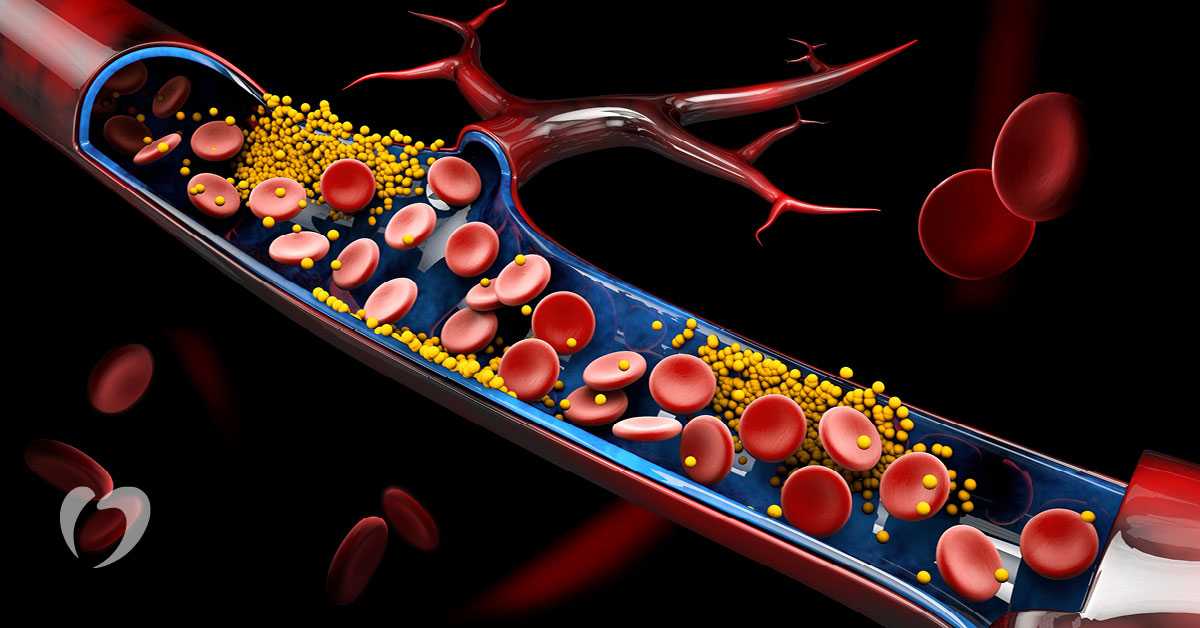How Cholesterol Affects Your Heart and Body

We’ve all probably heard at some point in time that too much cholesterol is bad for our bodies. But what is cholesterol? And where does it come from? Cholesterol is a waxy, fat-like substance found in the bloodstream. Our bodies need some cholesterol, which is made in the liver. Cholesterol stabilizes the structure of cells and aids the production of some hormones and vitamin D. The problem comes in when we have too much cholesterol, or an imbalance between our good cholesterol and bad cholesterol
There are two types of cholesterol:
- HDL (high density lipoprotein)
- LDL (low density lipoprotein)
When cholesterol is balanced, LDL flows in the bloodstream, and HDL carries the LDL back to the liver, where it is removed from the body. When we have too much cholesterol, the HDL is overwhelmed and cannot carry all the LDL back to the liver. The extra LDL builds up in arteries, where it creates plaque and starts to create problems.
How does cholesterol affect the heart and body?
When cholesterol builds up as plaque, the heart must work harder to pump blood because the arteries narrow and harden. This can result in angina, or chest pain, and coronary artery disease. Blockages in blood flow to the heart also cause a heart attack.
Plaque in other parts of the body can cause problems as well. Stroke occurs when blood flow is restricted to the brain. Just as blockage close to the heart causes coronary artery disease, blockage in extremities can cause peripheral artery disease. Cholesterol crystals can also lump together and form a type of gallstones.
What can be done to manage cholesterol?
There are many simple ways to reduce your cholesterol and risk for diseases caused by high cholesterol. The goal is to reduce LDL (the bad cholesterol), and increasing HDL (the good cholesterol) can aid in this process.
- Diet – Excess cholesterol comes from a diet high in saturated fats and trans fats. Saturated fats come from animal products, and trans fats from baked goods, crackers, and other processed foods. Lower intake of animal fats and keep good fats, or unsaturated fats, at a moderate level by focusing on a diet high in fruits, vegetables, and whole grains.
- Weight – Obesity is a risk factor for high cholesterol. Staying at or getting to a healthy weight lowers your risk of high cholesterol and many other health conditions.
- Exercise – Exercise promotes an increase in HDL, or good cholesterol. Even moderate exercise several times a week can help manage your weight, improve your cholesterol, and is great for the heart. Make 30 minutes a day, five times a week your exercise goal.
- Quit smoking – Smoking can lower HDL, which means it’s harder for your body to process LDL. Not only will quitting smoking improve your cholesterol, but it will improve your overall health.
- Medication – If a doctor has prescribed medication for your cholesterol, taking them as prescribed is an important part of managing your cholesterol. If you have any questions about taking them, contact your doctor or pharmacist.
If you have a family history of high cholesterol or have been told your numbers are high, contact the Oklahoma Heart Hospital to schedule an appointment with one of our specialists.
